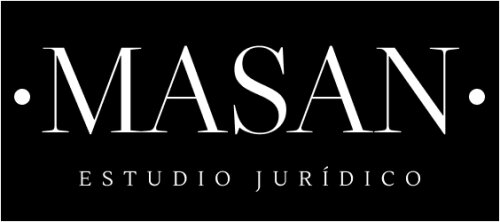Best Whistleblower & Qui Tam Lawyers in Vicente Lopez
Share your needs with us, get contacted by law firms.
Free. Takes 2 min.
List of the best lawyers in Vicente Lopez, Argentina
About Whistleblower & Qui Tam Law in Vicente Lopez, Argentina
Whistleblowing refers to the act of reporting wrongdoing - such as corruption, fraud, embezzlement, environmental violations, or threats to public health and safety - by public officials or private actors. Qui tam is a specific legal mechanism, known mainly from the United States, that allows private individuals to sue on behalf of the state to recover public funds and to share in any recovered amounts. In Argentina and in the municipality of Vicente Lopez, there is no widespread federal qui tam system equivalent to the US False Claims Act. Instead, whistleblowing is handled through a mix of criminal denunciations, administrative complaints and sectoral reporting channels. Protections and procedures vary by the type of wrongdoing, the competent authority and by whether the matter is addressed at the municipal, provincial or national level.
Why You May Need a Lawyer
Reporting wrongdoing can expose you to complex legal questions and possible risks. A lawyer can help you understand which type of complaint is appropriate - criminal, administrative, labor or civil - and identify the competent authority to receive the report. Legal counsel can assist with drafting a clear, factual complaint and gathering and preserving evidence in ways that strengthen your case while respecting procedural rules. If you are an employee, a lawyer can advise you about protections against retaliation and, where needed, pursue labor claims. If the wrongdoing involves public procurement, health funds or financial crimes, a lawyer can coordinate with prosecutors, auditors and specialist government agencies. Finally, a lawyer will evaluate any risk that you could face counterclaims, defamation suits or criminal exposure and advise measures to reduce those risks.
Local Laws Overview
There is no single national qui tam statute in Argentina that mirrors the US framework. Instead, Argentina uses a mix of criminal law, administrative law and sector-specific rules to address corruption and fraud. For allegations of corruption or embezzlement involving public funds, the Ministerio Público Fiscal and local prosecutors investigate criminal complaints. Administrative oversight is exercised by bodies such as the Oficina Anticorrupcion, the Auditoria General de la Nacion and provincial or municipal audit offices. Financial crimes and money laundering are handled by the Unidad de Informacion Financiera. Labor protections apply when a whistleblower is a private or public employee who suffers retaliation; complaints can be brought to the Ministerio de Trabajo or the corresponding provincial labor authorities. Municipalities like Vicente Lopez often have internal channels, ombudsman offices or transparency units that receive complaints about local administration. Civil avenues, such as claims for damages, are available in some cases, but bringing a civil action on behalf of the state resembling qui tam is not an entrenched general practice in Argentine law. Due to this patchwork approach, legal protections and remedies depend on the nature of the allegation, the public or private actors involved and which authority has jurisdiction.
Frequently Asked Questions
Can I bring a qui tam action in Vicente Lopez?
Argentina does not have a general federal qui tam law like the US False Claims Act. Private individuals cannot ordinarily file a civil suit that places them in the role of the state to recover public funds under a single nationwide qui tam regime. You can, however, file criminal or administrative complaints, and in certain situations citizens or organizations can bring civil actions for damages or to seek injunctions. A local lawyer can advise whether a particular cause of action exists for your facts.
Where should I report suspected corruption or fraud?
The appropriate destination depends on the type of wrongdoing. Criminal conduct should be reported to the Ministerio Publico Fiscal or a local prosecutor. Administrative or ethics concerns involving municipal officials can be reported to the municipal ombudsman or the municipality's transparency unit. National-level corruption may be reported to the Oficina Anticorrupcion or to the Auditoria General de la Nacion. Financial crimes are reported to the Unidad de Informacion Financiera. A lawyer can help determine the correct forum.
What protections exist against retaliation at work?
Workers who report illegal acts may be protected by labor laws that forbid unfair dismissal, discrimination or other retaliatory measures. Protections vary with the employment sector - public or private - and may require initiating administrative or labor claims within set timeframes. If you face retaliation, seek legal advice quickly to preserve remedies and evidence.
Can I remain anonymous when I report wrongdoing?
Some authorities allow anonymous or confidential reporting, but the level of protection differs by agency and by the nature of the investigation. Confidentiality can be limited if the authority needs to disclose information during a criminal or administrative proceeding. Consult legal counsel before submitting a report if anonymity is important to you.
Will I be entitled to a reward if the state recovers money because of my report?
Argentina does not generally provide a standardized qui tam bounty system. In some narrow or sector-specific situations, there may be incentives or awards, but these are exceptional. Most whistleblowers pursue protection and legal remedies rather than financial rewards. A lawyer can review whether any incentive schemes apply in your case.
What evidence should I collect before reporting?
Collect clear, factual documentation - such as emails, contracts, invoices, payment records, photographs, witness names and dates - while complying with applicable laws on privacy and confidentiality. Avoid tampering with evidence or obtaining documents through unlawful means. A lawyer can advise which materials are most useful and how to preserve them safely.
Can I make a criminal complaint myself without a lawyer?
Yes, anyone can file a criminal complaint, but having a lawyer can improve how the complaint is framed, help present evidence effectively and guide you through investigations and court procedures. Legal counsel can also protect you from potential counterclaims or procedural pitfalls.
What risks do whistleblowers face in Argentina?
Risks include workplace retaliation, reputational harms, defamation suits and, in some cases, threats to personal safety. Additionally, poorly framed accusations could expose the complainer to civil liability or criminal charges in rare situations. Legal counsel and protective measures, such as requesting confidentiality or involving authorities with protective capacities, can mitigate those risks.
How long does an investigation typically take?
Investigation timelines vary widely depending on complexity, the agency involved, and whether criminal or administrative processes are triggered. Some matters are resolved in months; others may take years. A lawyer can set realistic expectations for your specific situation and advise on steps that may accelerate review or preserve your rights.
How can I find a qualified lawyer in Vicente Lopez?
Look for attorneys with experience in anti-corruption, administrative law, criminal law and labor law, depending on the core issue. Consult local and provincial bar associations, ask for referrals from civil society organizations focused on transparency, and request initial consultations to assess experience with whistleblower matters. Make sure the lawyer explains fees, confidentiality and a proposed strategy before you proceed.
Additional Resources
There are several public bodies and civil society organizations that commonly handle or support whistleblower matters in Argentina and in Buenos Aires Province. Relevant public authorities include the Ministerio Publico Fiscal for criminal complaints, the Oficina Anticorrupcion for public-sector integrity issues, the Unidad de Informacion Financiera for financial crime and money laundering concerns, and provincial or municipal ombudsman and audit offices for local complaints. Useful civil society organizations include nonprofit transparency and accountability groups that provide guidance and support to complainers. Labor ministries and provincial labor offices handle employment disputes and retaliation claims. If you are unsure which body to approach, start by consulting with an experienced local attorney or a trusted civil society organization with expertise in transparency and public ethics.
Next Steps
1. Pause and document. Secure and preserve all relevant evidence - emails, documents, memos, records of meetings, photographs and witness contact information - while avoiding illegal methods to obtain information. Written notes with dates and times are often valuable.
2. Get legal advice. Contact a lawyer experienced in anti-corruption, administrative, criminal and employment law as soon as possible. Early counsel helps identify the correct authority, protects your rights and reduces personal risk.
3. Choose the right reporting channel. With your lawyer, decide whether to file a criminal complaint, an administrative report, a labor claim or a civil action. Consider confidentiality options and protective measures.
4. Protect yourself. If you fear retaliation or threats, inform your lawyer and relevant authorities so protective measures can be requested. Preserve copies of all correspondence and official receipts after you file any complaint.
5. Follow up and cooperate. Cooperate with investigators and provide additional documentation as requested. Keep your lawyer informed of any developments or retaliatory acts.
If you are in doubt, prioritize personal safety and legal counsel. An experienced local lawyer will help you assess the best path, whether the issue belongs at the municipal level in Vicente Lopez, at the provincial level in Buenos Aires, or before national authorities.
Lawzana helps you find the best lawyers and law firms in Vicente Lopez through a curated and pre-screened list of qualified legal professionals. Our platform offers rankings and detailed profiles of attorneys and law firms, allowing you to compare based on practice areas, including Whistleblower & Qui Tam, experience, and client feedback.
Each profile includes a description of the firm's areas of practice, client reviews, team members and partners, year of establishment, spoken languages, office locations, contact information, social media presence, and any published articles or resources. Most firms on our platform speak English and are experienced in both local and international legal matters.
Get a quote from top-rated law firms in Vicente Lopez, Argentina — quickly, securely, and without unnecessary hassle.
Disclaimer:
The information provided on this page is for general informational purposes only and does not constitute legal advice. While we strive to ensure the accuracy and relevance of the content, legal information may change over time, and interpretations of the law can vary. You should always consult with a qualified legal professional for advice specific to your situation.
We disclaim all liability for actions taken or not taken based on the content of this page. If you believe any information is incorrect or outdated, please contact us, and we will review and update it where appropriate.









